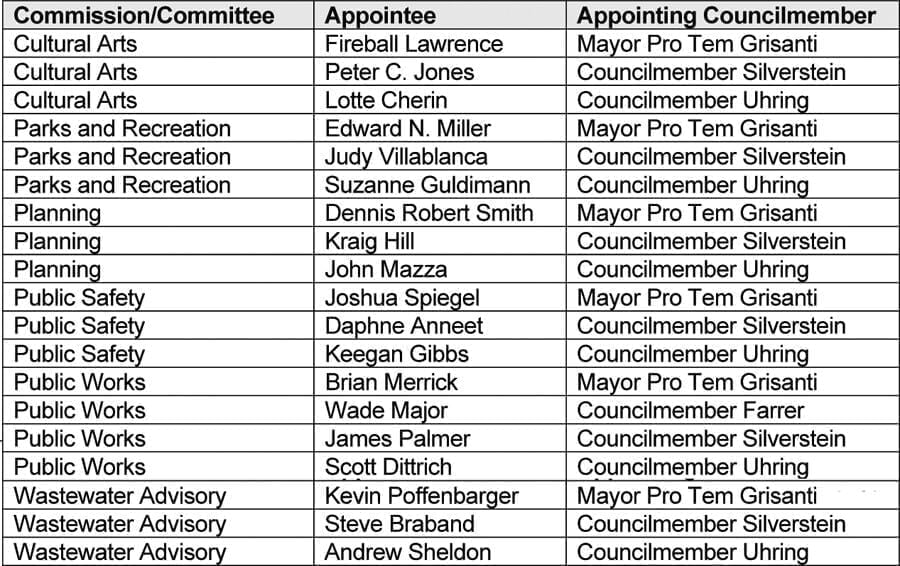By the end of Monday, Jan. 11’s six-and-a-half-hour Malibu City Council meeting, the council had barely broached one subject: government transparency, which ultimately resulted in one of the only concrete actions of the evening—a 3-2 vote directing city staff as a whole to spend no more than one hour of time per week on Council Member Bruce Silverstein’s multitudinous weekly public records requests. Other items on the agenda were put off for a future meeting.
The motion that was passed restricted staff to devoting only one hour per week per council member to requests not on the city’s work plan, which includes items like Woolsey Fire recovery and school district separation. But it was aimed largely at curtailing Silverstein’s numerous ongoing California Public Records Act requests. Silverstein estimated that he has submitted 30 or so requests since being sworn in about one month previously but said that about half of those were repeat requests for the same items.
Feldman said that fulfilling those requests has taken up days’ worth of her and staff’s time, making it difficult for her to fulfill other duties.
The council faced around 25 public commenters at the start of the meeting, many of whom chastised the group for its inability to work together. Several singled out Silverstein and Uhring, while one other in particular alleged that Grisanti had a history of dishonesty. The public comment, plus more than an hour of discussion over how the agenda was laid out and compiled, meant the council did not get to discuss any items until nearly 9 p.m., two hours and 25 minutes into the meeting that began at 6:30 p.m.
Items that had been on the agenda but were not addressed included a lengthy proposal co-sponsored by Silverstein and Uhring dealing with homelessness and another about government transparency.
The council did carefully go through multiple professional services agreements and contracts, usually line-items voted on in the “consent calendar” portion of the meeting, that dealt with matters like Woolsey Fire consulting and a roof replacement for City Hall. Silverstein asked city staff and the city attorney several questions about price differences between companies, how lowest-bidder contracts are awarded and if those prices can later be increased during the project—which might harken back to the Wagner affidavit, in which former City Council Member Jefferson Wagner alleged he had once been pressured and bribed to approve a specific contractor.
The newest council members also appointed residents to commissions, including some returning names such as planning commissioners John Mazza and Kraig Hill.
Council also voted to move forward on an ordinance requiring the electronic filing of campaign statements and public safety commissioners shared information about their progress planning vaccine distribution in Malibu.
The motion limiting staff time to fulfill public records requests was passed after a lengthy and contentious discussion in which Silverstein objected to his characterization by the mayor and other city council members as “intense” and “harassing” to the city manager and burdensome to city staff. He read aloud an email correspondence between himself and City Clerk Heather Glaser, in which he offered multiple times to work with staff to fulfill his document requests.
Council Member Karen Farrer read out a list of words Silverstein had used to describe Feldman in emails, which included “duplicity,” “deceitfulness,” “arrogance” and “possible narcissistic personality disorder.” Throughout Farrer’s remarks, Silverstein nodded.
“He calls Reva ‘a horrible person who should not be running our precious city,’” Farrer continued. “I’m not sure how precious it is to you, Bruce.”
Farrer also took issue with Silverstein’s conduct on social media, asking if Silverstein would appreciate being called a fascist online by another city council member—a word Silverstein has used to describe Feldman.
“I’ve been called that, and I’ve been called worse,” Silverstein said, though not by council members.
“You said it, not me,” Farrer responded.
Mayor Pro Tem Paul Grisanti said he had also been “on the receiving end” of some of Silverstein’s online ire but that he could not respond due to the Brown Act, while Pierson told Silverstein that he did not realize the burden he was putting on city staff.
Silverstein said that what he does on social media is “actually none of the staff’s business.”
The council member in particular focused on his request to see Feldman’s phone logs: “[Phone logs] are very revealing. They will show how long conversations occurred, with whom they occurred, when they occurred,” Silverstein said.
The council’s conversation dragged on past one o’clock in the morning, at which time Farrer moved to direct city staff to spend no more than a total of one hour per week per council member on requests not related to the city’s work plan, which was supported by Grisanti and Pierson and voted against by Silverstein and Uhring.




